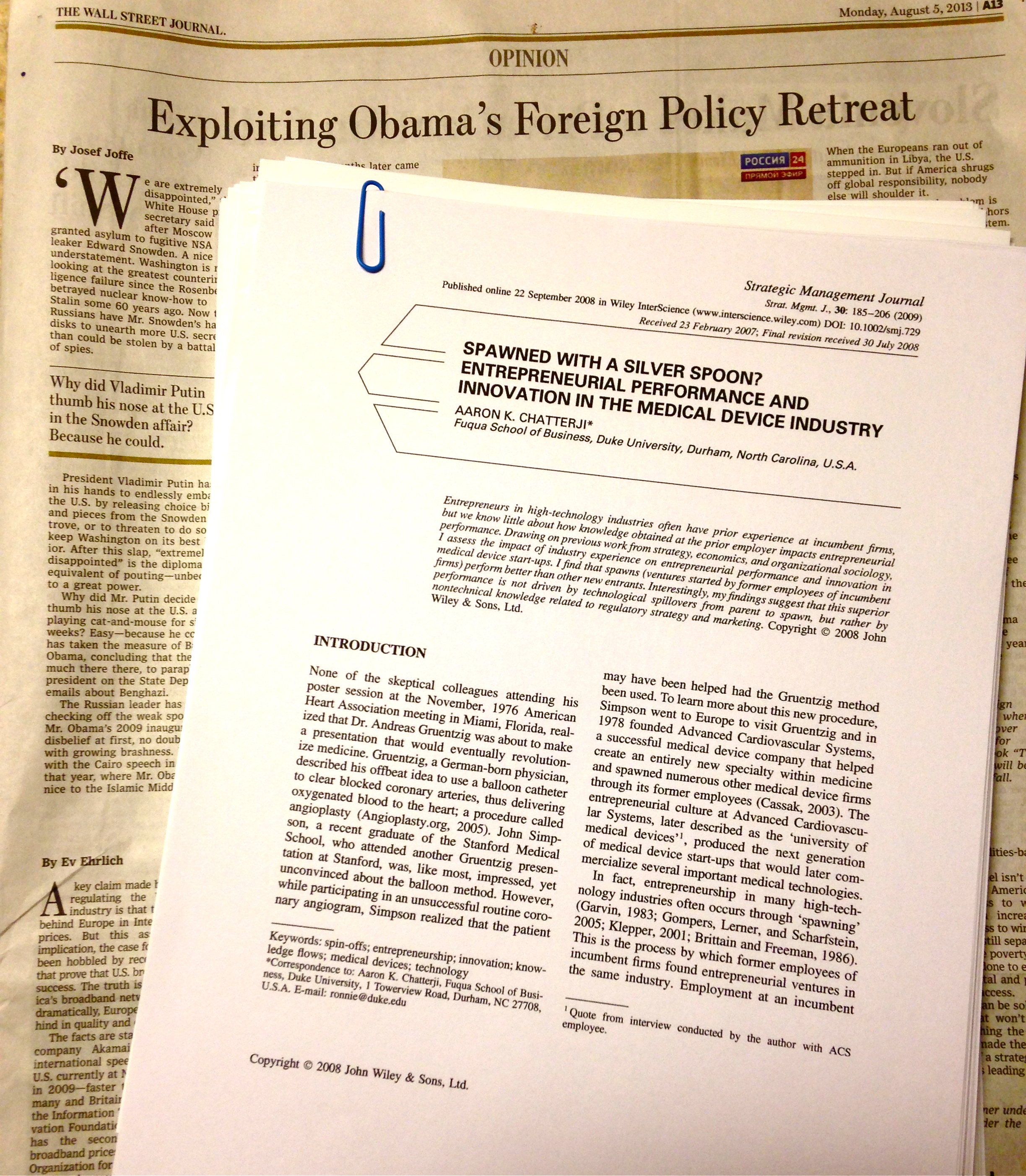 Some 50 academics were asked if they had been trained to write for practitioner publications during a session at the Academy of Management in Orlando on Friday. Zero hands went up. At a similar session the next day, another 50 academics were asked if they had any friends or family members that didn’t understand their research. Every hand went up.
Some 50 academics were asked if they had been trained to write for practitioner publications during a session at the Academy of Management in Orlando on Friday. Zero hands went up. At a similar session the next day, another 50 academics were asked if they had any friends or family members that didn’t understand their research. Every hand went up.
Academics in general have interesting thoughts and research to share with a relatively unbiased perspective (in comparison to spokespeople who work for companies or the government, for example). But often there is a language barrier involved. Summarizing a 40-page, nuanced academic research paper into a succinct, easy to read Op Ed, practitioner piece, blog and/or tweet can be challenging.
Attending a session at the conference on Saturday, a panel of eight different academics* who seemed to have fluency in the second language of writing for practitioner outlets shared some of their keys to success. Among the advice was:
– Think stories.
– What’s the headline?
– So what? Clearly explain to readers how your research impacts their lives.
– Illustrate the problem that your research addresses.
– Get rid of the passive voice – often used in academic writing – and write in the active voice without jargon.
– Make clear the purpose of your piece. Make one point well and don’t wander into other areas. Show concrete takeaways.
– Practice and read from thought leaders who write well for the general public (such as Malcom Gladwell).
– Know the publication and think about the editor. Imagine the audience. If you are writing for Harvard Business Review, imagine the average busy senior executive that the publication targets. What does she / he need to know?
– Study things that matter. Think about the “cool factor”.
– Consider co-authoring with practitioners who are able to bring their industry insights into the piece.
I think this feedback is spot on. To truly master this, I would encourage academics to utilize their university communications and / or school resources. Obviously their abilities will differ across schools. Effective university communications offices should consist of experienced professionals who understand how to bridge academic and practitioner writing. Many are former journalists themselves. (At Duke’s University’s Office of News and Communication, the majority of people working in media relations are former reporters. At the business school, both my colleague and I have a journalistic background).
We are able to offer feedback on what it takes to place an article. I am always amused when academics think that getting an article in the Financial Times and Forbes is as easy as booting up the computer. In the crowded and disruptive media world, editors receive countless pitches per day. We as university communications professionals not only serve the purpose of providing editorial support, but also guiding on strategy and tactics to place an article in a publication. We should be listening to what editors want and need in their pitches, and we can therefore share those insights with professors and researchers. We have the contacts – or at a minimum advice on how to ensure your piece reaches the appropriate person.
For most academics, I would highly recommend doing Op Ed writing workshops. It is virtually impossible to just land in a new country and start speaking a new language. We need to take classes in some form to develop fluency. It is the same for Op Ed writing. As stated above, many professors and researchers are trained in writing the language of “academic publication speak”. To dedicate your career to this form of writing and then just expect a seamless transition to the art of writing for the mainstream press is a tall order for most. Duke University offers media training and Op Ed article training sessions every year (here’s the university’s Op Ed writing guidelines) and at the Fuqua School of Business, we offer more informal media training sessions and editorial support for individual faculty members on an ad hoc basis.
If your university or school communications offices are inadequate, or if you are looking for more ongoing communications support for a larger project, then you should consider bringing on an outside consultant.
Every professor needs to balance teaching, research and your school’s expectations. That said, I would encourage academics to realize the importance of regularly writing for the mainstream press and promoting your research to the greater public. To make an impact, there needs to be ongoing commitment to this activity. There are other ways to accomplish this goal, and I will cover some of these areas in future blog posts.
In the meantime, feel free to share your insights, experiences and best practice on writing for the mainstream press in the comments section below.
* Session participants were professors Jamie Ladge and Kimberly Eddleston of Northeastern; Ellen Ernst Kossek of Purdue; Kimberly Elsbach of the University of California Davis; Ryan Quinn of the University of Virginia; Andy Molinsky of Brandeis University; David Ketchen of Auburn University; and Robert Ford of University of Central Florida. Julia Kirby from Harvard Business Review brought the editorial perspective and Bill Rebarick from Cubic also was on the panel.
